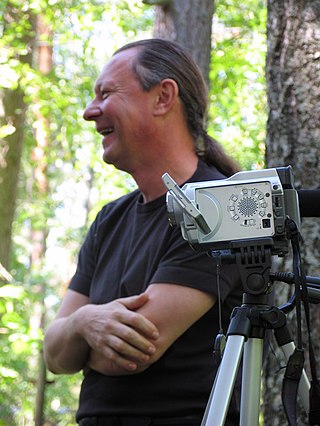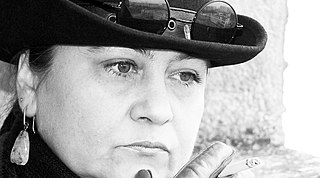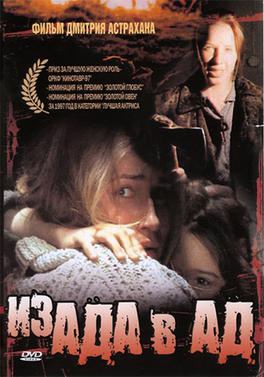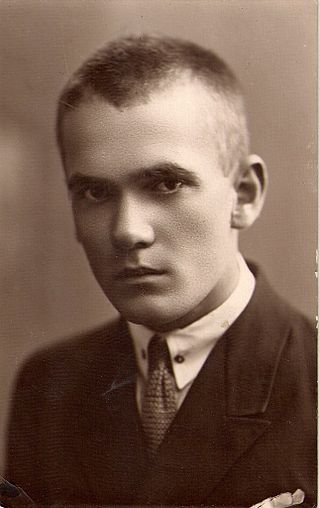
Belarus, officially the Republic of Belarus, is a landlocked country in Eastern Europe. It is bordered by Russia to the east and northeast, Ukraine to the south, Poland to the west, and Lithuania and Latvia to the northwest. Covering an area of 207,600 square kilometres (80,200 sq mi) and with a population of 9.2 million, Belarus is the 13th-largest and the 20th-most populous country in Europe. The country has a hemiboreal climate and is administratively divided into six regions. Minsk is the capital and largest city; it is administered separately as a city with special status.

Minsk is the capital and the largest city of Belarus, located on the Svislach and the now subterranean Niamiha rivers. As the capital, Minsk has a special administrative status in Belarus and is the administrative centre of Minsk Region and Minsk District. As of 2023, it has a population of two million, making Minsk the 11th-most populous city in Europe. Minsk is one of the administrative capitals of the Commonwealth of Independent States (CIS) and the Eurasian Economic Union (EAEU).
The mass media in Belarus are mass-media outlets based in Belarus. Television, magazines, and newspapers are operated by state-owned and for-profit corporations and depend on advertising, subscriptions, and other sales-related revenue. The Constitution of Belarus guarantees freedom of speech, but this is contradicted in practice by repressive and restrictive laws. Arbitrary detention, arrests, and harassment of journalists are frequent in Belarus. Anti-extremism legislation targets independent journalism, including material considered unfavourable to the president.

Alexander Grigoryevich Lukashenko is a Belarusian politician who has been the president of Belarus since the office's establishment in 1994. This makes him the longest-serving European president.

Rostislav Ivanovich Yankovsky was a Belarusian actor. He was born in Odesa on 5 February 1930, studied in Leninabad and debuted in the Tajik theatre in 1951. Since 1957, he worked in the Minsk Drama Theatre. Yankovsky was named a People's Artist of the USSR in 1978. He is the older brother of the more famous Oleg Yankovsky. His son Igor Yankovsky is also an actor. In 1994 he became the Chairman of the Minsk International Film Festival Listapad.

Belarusfilm is the main film studio of Belarus.
The Holocaust in Belarus refers to the systematic extermination of Jews living in the Byelorussian Soviet Socialist Republic during its occupation by Nazi Germany in World War II. It is estimated that roughly 800,000 Belarusian Jews were murdered during the Holocaust. However, other estimates place the number of Jews killed between 500,000 and 550,000.

Vladimir Kozlov, born 7 June 1956, is a film director and screenwriter from Belarus.
Listapad, also known as Minsk International Film Festival (MIFF) or Minsk International Film Festival Listapad, is an annual film festival which takes place in November in Minsk, Belarus. It is the largest such festival in Belarus.

Harutyun Khachatryan is an Armenian film director, script writer, director of photography, film producer, General director of the Golden Apricot Yerevan International Film Festival, Meritorious Artist of the Republic of Armenia and voting Member of European Film Academy since 2006.

Siarhei Vosipavich Prytytski was a Belarusian Soviet communist activist, politician, and partisan commander. Having started as a communist activist in Western Belarus, after the Soviet invasion of Poland he became a high-ranking politician in the Belarusian Soviet Socialist Republic.

Andrei Sergeyevich Smirnov is a Soviet and Russian actor and filmmaker who is known for directing the films Belorussian Station (1971), Autumn (1974) and A Frenchman (2019). He was a member of the jury at the 38th Berlin International Film Festival in 1988.

Yelena Nicolaevna Trofimenko is a Belarusian film director, producer, screenwriter, author, actress and poet.
The following is a timeline of the history of the city of Minsk, Belarus.
Minsk Pride — gay pride in Minsk (Belarus). This is a festival in support of tolerance for gays, lesbians, bisexuals and transgender people in Belarus.

Valentin Nikolayevich Elizariev is a Belarusian Soviet balletmaster, choreographer, and pedagogue. He was awarded the title of People's Artist of the USSR in 1985.

From Hell to Hell is a 1997 Belarusian drama film about the Kielce pogrom directed by Dmitry Astrakhan. The film was selected as the Belarusian entry for the Best Foreign Language Film at the 69th Academy Awards, but was not accepted as a nominee.

Maksim Łužanin, was a Belarusian prose writer, poet, screenwriter, translator, essayist, and a literary critic. In 1969, he was awarded for the Honored Artist of the Byelorussian SSR and in 1975, Łužanin was awarded with the honorary badge Meritorious Activist of Culture of Polish People's Republic.
Anastasia Slutskaya, also known as Princess Slutskaya, is a 2003 historical drama film by Belarusfilm Production Company.

Andrei Kureichik is a Belarusian screenwriter, playwright, director, and publicist.















